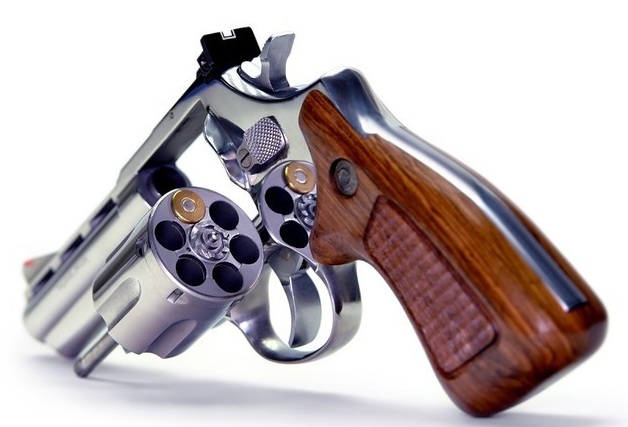
The re-emergence of the name Public Opinion in Jamaican journalism is stuff that gladdens the heart. Especially mine.
When I learnt in 1961 that the little weekly newspaper at Torrington Road was planning to become a daily, I inquired whether a position as a reporter could be mine. The answer was yes! And so, in the first week of January 1962, the year of Independence, the year of the opening of the National Stadium for the Central American and Caribbean Games, I began what, after 58 years, is still a life in journalism and public affairs.
I learnt by covering the courts and Parliament. I was there for the debate on the flag, the national anthem and the Constitution including submissions from members of the public at large. And when, several months after Independence, people were still clamouring for a foreign policy debate, I was there to hear it presented and completed in only five words from Bustamante, “We are with the West.”
That Public Opinion was started by Osmond T. Fairclough a Jamaican who had migrated to Haiti, a country that had freed itself from slavery and oppression, where he became an assistant bank manager. Returning to Jamaica and finding himself unable to get a job at any of the banks because he was Black, he set his eyes to political action by launching a newspaper in 1937 as a means of creating the environment for a political party. It took a year, and the People’s National Party was born.
In its first editorial, New Wine in New Bottles, it presented itself:
Public opinion is unorganised, and therefore non-existent for all practical purposes. If it is to organise itself, a periodical is needed to focus attention and fact and theories, on men and events. The interest felt in the future of the country and in the possibility of moulding a more effective national life, is a new thing: ten years ago it did not exist. To represent the new opinions of the present time – its ambitions and its hopes – there must be a new voice. It is for this reason that Public Opinion has appeared. Its name has been taken in no spirit of presumption: it has been chosen in order to lay before the reader the great need of the hour. It is not expected that Public Opinion will please everybody: but it is expected to meet a need – the need for some organ existing solely for presentment of topics with a direct bearing on the welfare of Jamaica.
In the ocean of Jamaican journalism, the little newspaper contended with other small publications such as The Jamaica Times, Catholic Opinion, and the giants, the Daily Gleaner and Star. It faced national edict that banned it from receiving any government advertising, it faced destruction by fire and propaganda, and it faced attack by libel and prison sentence.
This last was central to Fairclough’s nation-building determination and it had some interesting elements and far-reaching consequences.
In 1943 while the PNP was negotiating a new Constitution with the colonial authorities, and several other colonies were seeking independence, Churchill had declared that while he remained the King’s first minister he had no intention of presiding “over the liquidation of the British Empire.” When the British then presented Jamaica with a Constitution in July 1944 it omitted vital terms which would have ensured a real hand-over of power. The PNP felt betrayed. Party leader Norman Manley who had worked assiduously on the document, said it was gutted of “all we have fought for in five years.”
Not quite so to Public Opinion whose fearless writer, Roger Mais, wrote an article Now We Know, in which he excoriated and lampooned Winston Churchill the British Prime Minister. Mais’ article appeared in Public Opinion on July 11. It began:
Now we know why the draft of the new constitution has not been published before. The authors of that particular piece of hypocrisy and deception are the little men who are hopping about… all over the British Empire implementing the real imperial policy implicit in the statement by the Prime Minister. That man of brave speeches has told the world again and again that he does not intend the old order to change; that he does not yield an inch in concessions to anyone, least of all to people in the colonies. Time and again he has avowed in open parliament, that, in so many words, what we are fighting for is that England might retain her exclusive prerogative to the conquest and enslavement of other nations.
It was too much for the authorities. The next day police raided the offices of Public Opinion and seized Mais’ manuscript. He was arrested and charged with breaches of the Defence Regulations (DORA). Despite a brilliant defence by Norman Manley and Harry Dayes, he was convicted of seditious libel and jailed for six months.
But Public Opinion’s struggle for self-government intensified. In November 1944 Jamaica got its new Constitution. Elections were held a month later. Eighteen years later we became independent.
So Fairclough had provided the means for people like Mais to express their progressive views. The paper survived at least two fires – one at Torrington Road, and one in 1981 when it had moved to Downer Avenue.
Later there was a libel suit filed against a John Maxwell article and it came around the same time that the Bustamante government banned the flow of government advertising to Public Opinion. But there were people in the world of commerce who rendered assistance from time to time. These included Vin Bennett, and Carlton Alexander of Grace Kennedy and Company, along with Marzouca’s. Assistance for the paper also came from the Coffee Board and the Banana Board.
Interestingly, many of Public Opinion’s writers went on to great and important roles in Jamaica. Here are some names,
Osmond Fairclough, Roger Mais, Wilmott Perkins, John Maxwell, Ewart Walters, Frank Hill, Headley P Jacobs, Henry Fowler, Roger Mais, Vernon Arnett, Una Marson, Ken Jones, Len Nembhard, Ken Chaplin, Amy Bailey, Walter Adolphe Roberts, Walter Domingo, Wilmot Perkins, Keeble McFarlane, Louis Marriott, Fred Wilmot, Allan Isaacs, Peter Abrahams, Michael Manley, Consie Walters, R Nash Herbert, Clyde Hoyte, Alma Norman, Carlton Davis, Ken Nelson, Carmen Senior, Aimee Webster deLisser, Cedric Lindo, Errol Townshend, and Neville James.




I am helping prepare an edited academic book that will be published by Polity Press. The details of the book are as follows:
Title: The Caribbean Race Reader
Publication date: Junce 2023
We would like to request permission to include in this volume an article that originally appeared in (a previous life of) Public Opinion:
Una Marson, “Feminism,” Public Opinion, 1932; and
Roger Mais, “Now We Know” Public Opinion, 1944
Do you hold the rights to reproduce the above texts? If so, we would be very grateful if you were to grant to Polity non‐exclusive World English language rights to reproduce the above‐mentioned material in this and future editions of our book, which may be published in any medium by Polity.
This book is intended as an educational text and it is therefore important to keep costs down as far as possible. I hope you will bear this in mind if setting a fee.
Please contact me at my email if you need any further information.
With best wishes,
Marcos Cisneros
Dear Mr Cisneros
Kindly accept apologies for this very late response to your request to republish articles by Una Marson and Roger Mais in your upcoming publication. This Public Opinion is not connected to the earlier Public Opinion. Based on that fact, we are unable to give permission.
Very kind regards
D Whyte
PO Administrator